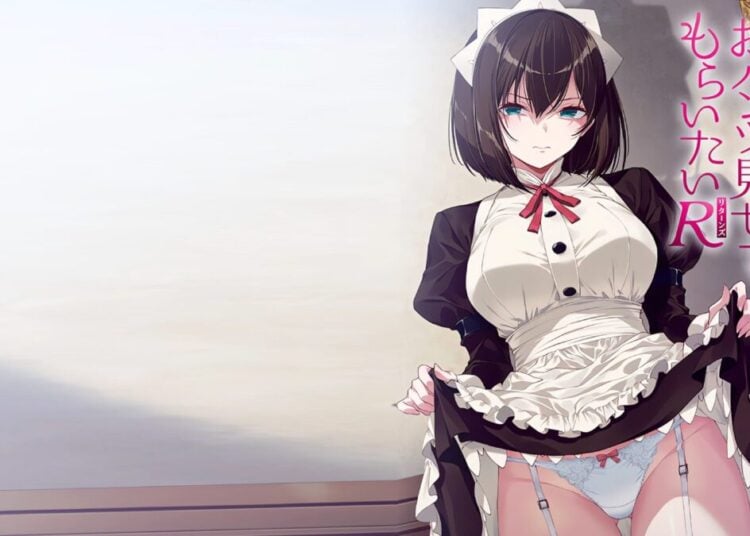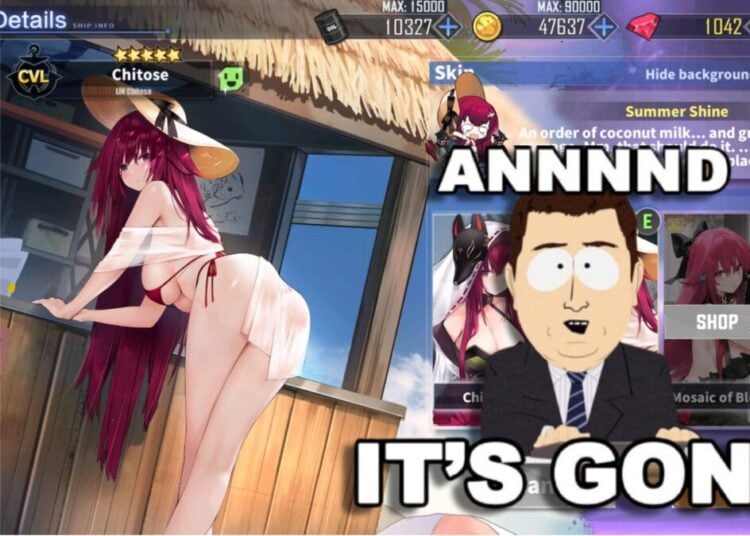The United Nations has once again set its sights on sparking outrage over Japanese manga and anime. Recently, as revealed by an April 15th piece by the Japanese branch of HuffPo, the UN Entity for Gender Equality and the Empowerment of Women (aka, UN Women) has sent a strongly-worded letter to financial newspaper Nikkei, protesting an “unacceptable” full-page advertisement for Tawawa on Monday. Though the actual letter has not been divulged, and it’s unclear if it really came from New York, the UN Women Japan Liaison Office nonetheless demands that the paper’s executives explain and correct their apparent mistake.
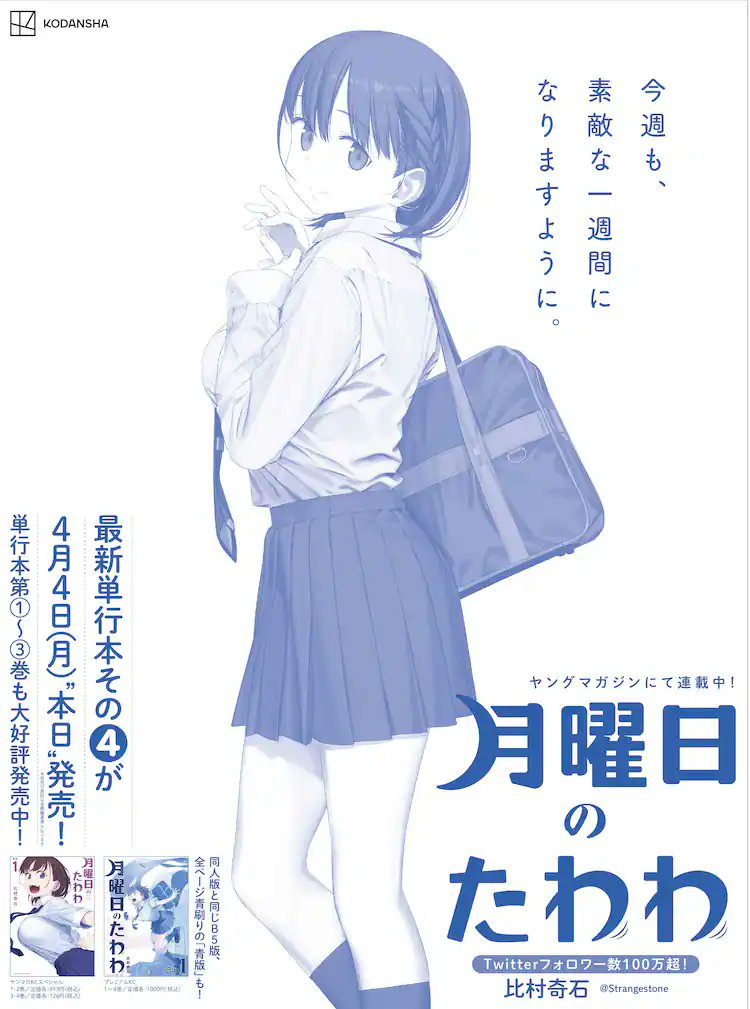
On the surface, it’s not hard to see why the agency feels indignant. Nikkei is one of Japan’s “big six” newspapers, readily available just about anywhere in the country, and an active signatory of UN Women’s “Unstereotype Alliance” initiative, a platform that “seeks to eradicate harmful stereotypes in all media and advertising content.” Despite the publication notably being host to the Nikkei Women’s Empowerment Advertising Award, it was nonetheless accused of breaking the terms of its membership and the broadly-defined “3 Ps” (Presence, Perspective, Personality). As put by Sae Ishikawa, director of the Japan Liaison Office, the ad itself represented “not only a threat to the public, but also to the public’s perception of underage girls”, invoking long-standing concerns over the sexualization of school students in Japan. While in a piece by Unseen Japan, which also discreetly derides the manga as “unabashedly sexualized and exaggerated”, she’s quoted as more bluntly stating:
A manga advertisement that portrays an underaged woman in a school uniform in a sexualized manner plays a part in strengthening the stereotype that ‘high schools girls should be this way.’ It also holds the danger that it can encourage men to sexually exploit underage women. UN Women is opposed to the publishing of such ads. It goes against the memoranda exchanged between [The Nikkei] and UN Women.
On the other hand, although Tawawa is undeniably ecchi, as highlighted here in J-List, the actual work in question is anything but risqué. Mangaka Kiseki Himura’s slice-of-life romp, capturing moments from the lives of workers and students, instead focuses on how they maintain wellness and motivate themselves through the day. The fanservice that pops up here and there is no more explicit than what’s been in most primetime anime for decades, while the female characters are shown to have some depth and personality. Combined with how tame the ad itself is, it’s little surprise that Nikkei‘s editorial staff had no real objections to running it. Moreover, the protest comes off at best, misplaced, especially when other mainstream broadsheets are known to slip in gravure promotions featuring real models (who may or may not be underage), yet are barely so much as chided.
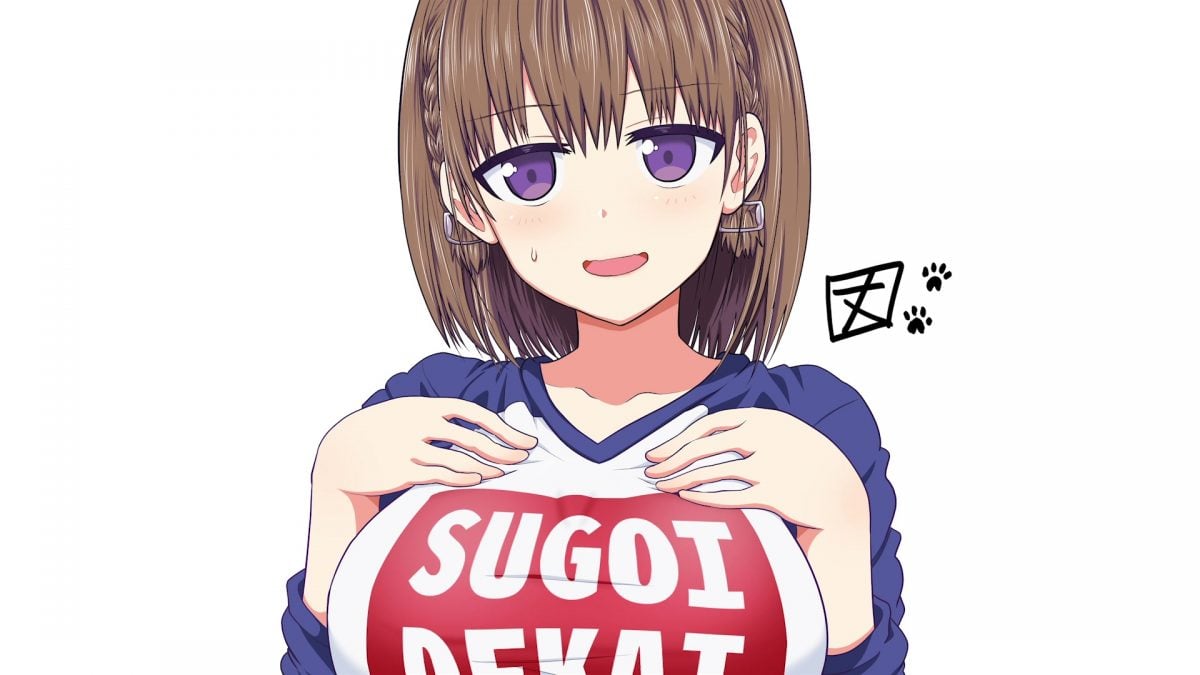
Whichever way, this marks a noticeable shift in the discourse. Although UN Women (like other UN-affiliated agencies) claims to neither monitor nor restrict what private companies do as members, that pretense seems to have been dropped. The body had also made vague references to how “there are more than a few people tired of seeing a full-page national ad like this”, as well as platitudes about Japan needing to heed the “eyes of the world”. This was rejoined by Associate Professor Jibu Renge of the Tokyo Institute of Technology, one of the main advocates behind the censorious revisions in the city’s Gender Equality Plan in 2021, through a separate HuffPo interview. Beyond decrying how problematic the ad is, stating a “right of women and men who do not like sexually explicit manga not to be exposed to expressions they do not want to see” that seems lifted straight out of the censorious draft, she further adds:
…the newspaper is seen as “endorsing society” by affirming the “stereotype” (a public stereotype) that “heterosexual men exploit underage girls as sexual objects.
By daring to use an illustration of a high school girl, the ad confidently and broadly conveys the message the work is sending. What is happening in the work is sexual abuse of high school girls. It is a composition in which the Nikkei affirms the very sexual violence and sexual assault of underage girls by men.
This is far from the first time such views have been espoused by UN bodies, or from those in sympathetic to them. If anything, the logic being employed, including the idea that men would become more likely to harass women by looking at a fictional character, is almost identical to the ones underlying other recent attacks on free speech highlighted by Ken Akamatsu. This has notably been seen in the recent petitions for legal amendments sacrificing artistic liberties while invoking “United Nations Recommendations in light of the current situation of worsening damage caused by child sexual exploitation“. Such policies would not only significantly cripple anime and manga, but would also subject Japanese society at large to arbitrary judgement by ideologues and unaccountable censors.
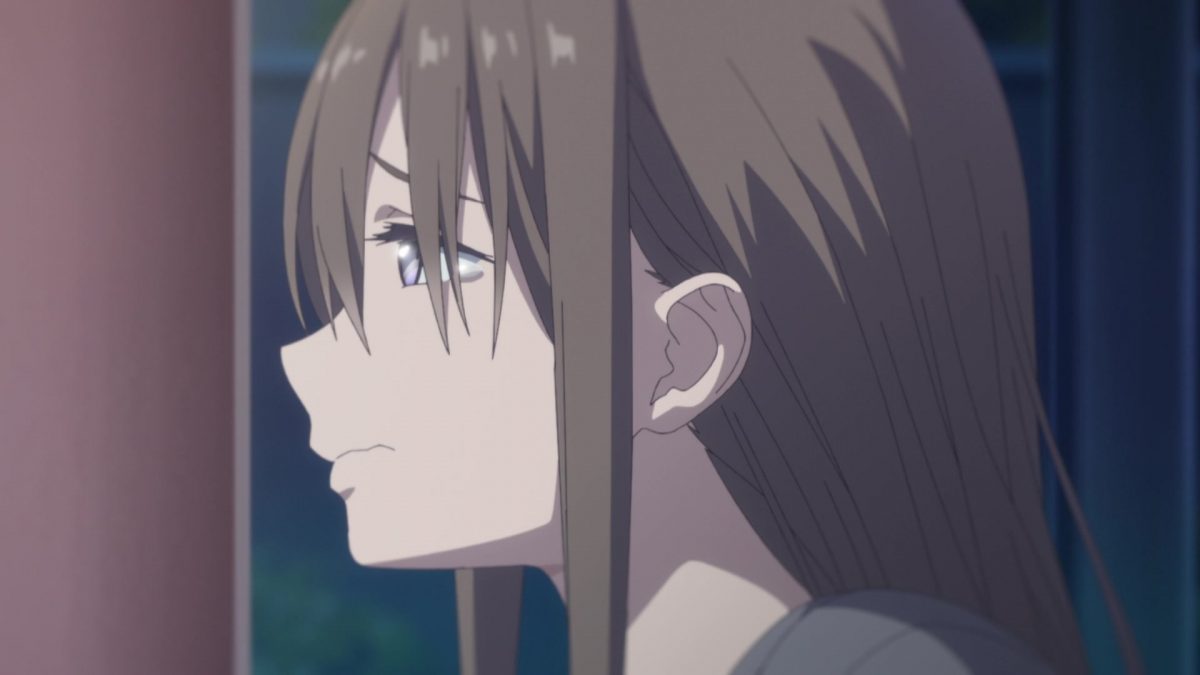
The response, unsurprisingly, has been almost overwhelmingly negative against UN Women, and not just on social media. Former track and field athlete and sports commentator Dai Tamesue, for instance, pointed out how what’s considered offensive “differs from culture to culture”. Akamatsu, on his part, not only refuted the claims being made in detail and compared it to the agency’s earlier attempts at “external pressure.” Alongside parliamentary member Taro Yamada, he observed how said protest may be a case of overreach by imposing foreign standards with little respect for sovereignty. Even from within the Unstereotype Alliance, advisor Morihiro Harano criticized his erstwhile peers, as “no one can decide” what expression is acceptable or not, neither Nikkei nor UN Women. It’s telling, nonetheless, how his voice on the matter was neglected.
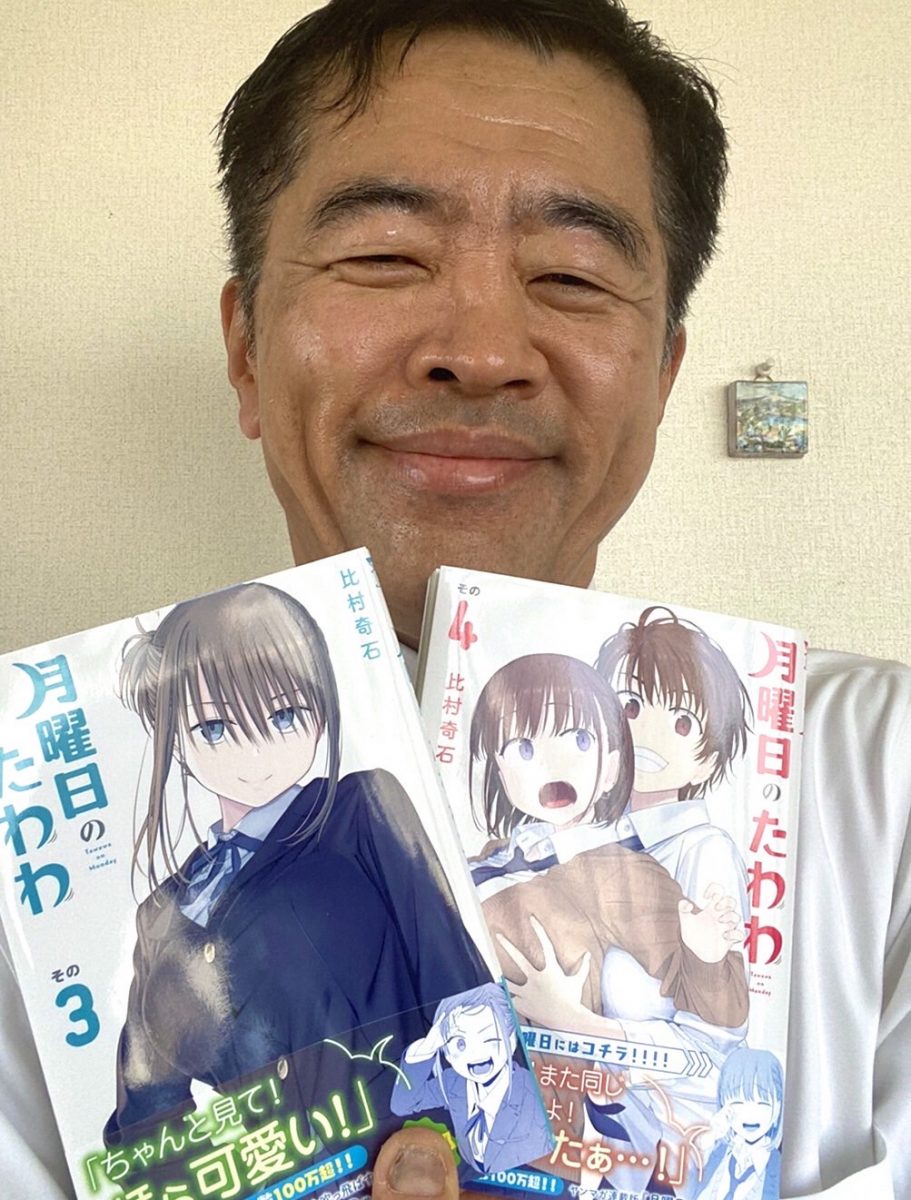
It’s worth noting, as well, that even after several days, neither Kiseki Himura nor Nikkei have given any response to UN Women or its supporters over the matter. Moreover, it seems like this latest attempt at “cancelling” anime and manga is already backfiring. In an April 21st survey by the Synodos Institute, and in contrast to UN Women’s claims, the majority of respondents found no problem with the ad (validating earlier surveys with similar results), with younger women notably finding the art style acceptable.
https://t.co/Hp0mrulRSU
According to this survey,about 80% people think "Tawawa on monday" ad have no problem.
About 70% of woman think no problem.The younger age group is more accepting this ad.
Thinking that these type of art-style are accepted by youth,this result make sense pic.twitter.com/MUEvXty7d0— <レイフォース> (@rayforcegame) April 21, 2022
The controversy, ironically enough, proved to be a big boon for the series, with the first volume even being offered for free on Amazon Kindle and other e-book sites. As one Biglobe piece recently summed it up:
The timing of this campaign is exquisite, as this is a work that has been in the midst of a whirlwind of controversy.


